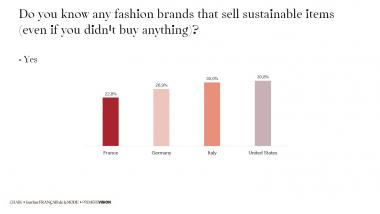Natural textile sector responds to Corona with creativity and cooperation
While you can read everywhere that the fashion industry is on the verge of collapse and is demanding funding from the government, many textile and leather companies with an ethical background are actively and jointly working on creative solutions so to avoid closing.
It is now becoming clear that smaller sustainability pioneers have some advantages over the retail giants and big brands. Flexibility, a strong connection between suppliers and customers and credibility are now paying off.
Mobility is trump card
The precarious economic situation in the stationary retail sector forces companies to take new and creative paths. Close and emphatic customer loyalty and the flexibility of smaller shopkeepers pave the way. And the ideas and measures are manifold. Some redirect their goods to online trading, offer a delivery service. Life videos from the shops, which present and explain the goods, or participation campaigns for consumers are further examples. Manufacturers and brands are also rethinking. For example, some companies are producing face masks to cushion the decline in sales somewhat, while others are shifting the short-term production focus to basic products that are easy to market online.
Supply chain safety
The leather and textile industry are currently not only facing the problem of falling sales. The fragile global markets, which supply raw materials and services for large corporations, are currently becoming a threat. If the economies in China and Bangladesh come to a standstill, the German fashion market will no longer be able to obtain sufficient goods in the short term. Companies that produce in Germany or in other economically stable countries are now at an advantage. Some of the companies that purchase raw materials from abroad are already ordering them for the next production cycle, on the one hand to give the supplier a certain amount of security, and on the other hand to be prepared for the post Corona era.
Community spirit
An ethical business practice does not only mean acting in an environmentally and socially responsible manner with regard to supply chains. Credibility, trust and empathy are just as important now if the fashion industry does not want to lose itself in price dumping and fierce competition. The press talks about billion-dollar cancellations, corona bargains and bankruptcies. Many IVN members show that there is another way. Suppliers tell us that they are holding back orders until the end of April in order to give the trade some financial leeway. Retailers usually at least consult with their suppliers if they are unable to call up a complete order. Retailers with online shops spontaneously take in goods from friendly brands, even if the products do not fit into the company's own portfolio. Brands advertise their customers' sales channels in social media, orders are bundled. People talk to each other - the customer with the supplier, but also competitors with competitors.
Slow fashion
Conventional fashion is subject to extremely fast cycles - "fast fashion" is the keyword. To a lesser extent, the fashion industry at least follows the seasonal seasons. Currently, the spring collection is hanging in the shops and cannot be sold in June. This is no different for sustainable fashion. However, the fashion trends are less pronounced, so that the current merchandise can still be worn next spring. The sustainable consumer attaches somewhat less importance to the fashion aspect and green fashion is fashionable but also tends to be more timeless than conventional fashion.
The mood
Naturally, companies from the natural fashion scene are now also forced to reduce their operating costs if they want to survive. This means short-time work, and if the situation continues for a longer period of time, this will certainly include layoffs. And of course, all niche market players are also deeply concerned. But whoever we have spoken to so far, we hear stories of opportunity, gratitude and activity.
Some see an opportunity in involuntary pauses - for example, this forced pause is certainly beneficial to climate protection. There is a very real chance also, that the fashion cycle can now be shifted back a month and thus be brought back into line with the real situation.
Many IVN members are grateful, for example, that they are based in Germany. The health care system is at least still stable at present and the black zero enables our government to set up a rescue fund. Many are also grateful for the solidarity and trust that is shown to them. From the end consumer to the business partner to the landlord, who would rather reduce or suspend a rent claim than lose a long-term tenant.
The mood is battered, but not yet in the basement. It is to be hoped that everyone will soon be able to resume their economic activities in the normal framework and that the privileges and advantages enjoyed by the sustainable fashion industry will be sufficient to ensure that everyone comes through this crisis as unscathed as possible.
Internationaler Verband der Naturtextilwirtschaft e.V.



